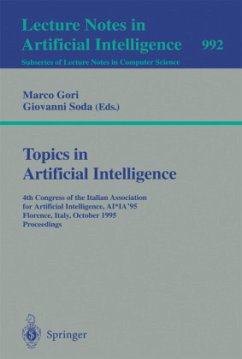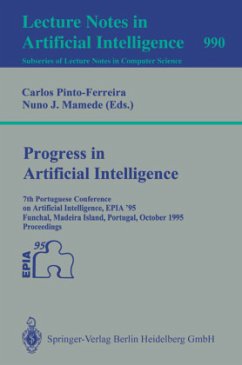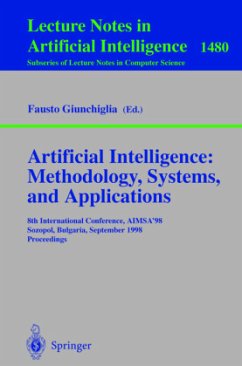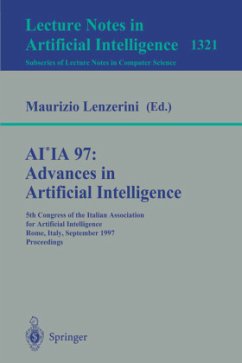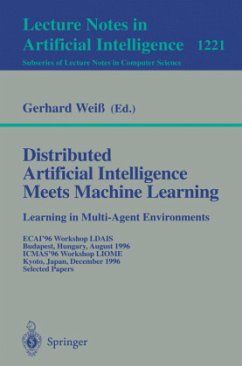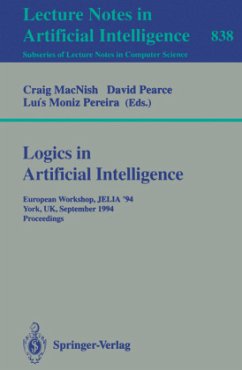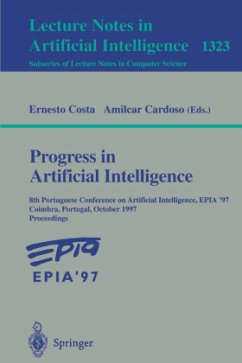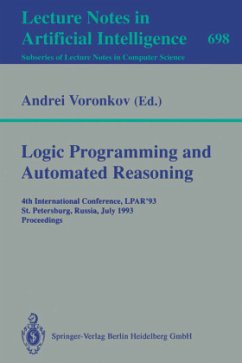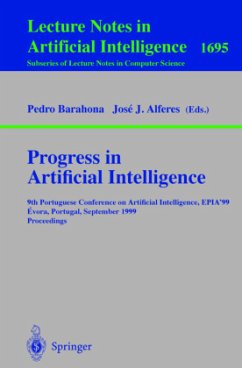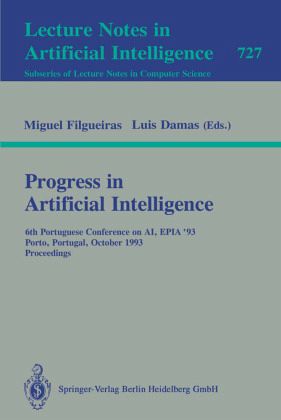
Progress in Artificial Intelligence
6th Portuguese Conference on AI, EPIA `93, Porto, Portugal, October 6-8, 1993. Proceedings
Herausgegeben: Filgueiras, Michel; Damas, Luis M.M.
Versandkostenfrei!
Versandfertig in 1-2 Wochen
39,99 €
inkl. MwSt.

PAYBACK Punkte
20 °P sammeln!
This volume presents the proceedings of the 6th PortugueseConference on Artificial Intelligence, EPIA '93, organizedby the Portuguese Artificial Intelligence Association. Likethe last two conferences in this series, it was run as aninternational event with strict requirements as to thequality of accepted submissions. Fifty-one submissions werereceivedfrom 9 countries, the largest numbers coming fromPortugal (18), Germany (10), and France (8).The volume contains 25 selected papers, together with 7poster abstracts and one invited lecture: "Organizations ascomplex, dynamic design problems" by L. ...
This volume presents the proceedings of the 6th PortugueseConference on Artificial Intelligence, EPIA '93, organizedby the Portuguese Artificial Intelligence Association. Likethe last two conferences in this series, it was run as aninternational event with strict requirements as to thequality of accepted submissions. Fifty-one submissions werereceivedfrom 9 countries, the largest numbers coming fromPortugal (18), Germany (10), and France (8).The volume contains 25 selected papers, together with 7poster abstracts and one invited lecture: "Organizations ascomplex, dynamic design problems" by L. Gasser, I. Hulthage,B. Leverich, J. Lieb, and A. Majchrzak, all from theUniversity of Southern California. The papersare groupedinto parts on: distributed artificial intelligence, naturallanguage processing, knowledge representation, logicprogramming, non-standard logics, automated reasoning,constraints, planning, and learning.





